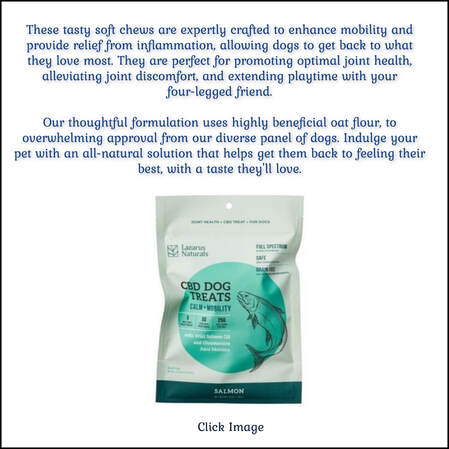
By: Washington State University's College of Veterinary Medicine
Some dog breeds are more sensitive to certain drugs than other breeds. Collies and related breeds, for instance, can have adverse reactions to drugs such as ivermectin and loperamide (Imodium). At Washington State University's College of Veterinary Medicine you can get your dog tested for drug sensitivity and keep up with the latest research.
Drug sensitivities result from a mutation in the multi-drug resistance gene (MDR1). This gene encodes a protein, P-glycoprotein that is responsible for pumping many drugs and other toxins out of the brain. Dogs with the mutant gene cannot pump some drugs out of the brain as a normal dog would, which may result in abnormal neurologic signs. The result may be an illness requiring an extended hospital stay - or even death.
Some dog breeds are more sensitive to certain drugs than other breeds. Collies and related breeds, for instance, can have adverse reactions to drugs such as ivermectin and loperamide (Imodium). At Washington State University's College of Veterinary Medicine you can get your dog tested for drug sensitivity and keep up with the latest research.
Drug sensitivities result from a mutation in the multi-drug resistance gene (MDR1). This gene encodes a protein, P-glycoprotein that is responsible for pumping many drugs and other toxins out of the brain. Dogs with the mutant gene cannot pump some drugs out of the brain as a normal dog would, which may result in abnormal neurologic signs. The result may be an illness requiring an extended hospital stay - or even death.
Problem Drugs
Many different drugs and drug classes have been reported to cause problems in Collies and other herding breed dogs that carry the MDR1 mutation. We and other researchers have documented the toxicity that occurs with several of these drugs.
Drugs that have been documented to cause problems in dogs with the MDR1 mutation include:
Acepromazine (tranquilizer and pre-anesthetic agent). In dogs with the MDR1 mutation, acepromazine tends to cause more profound and prolonged sedation. We recommend reducing the dose by 25% in dogs heterozygous for the MDR1 mutation (mutant/normal) and by 30-50% in dogs homozygous for the MDR1 mutation (mutant/mutant).
Butorphanol (analgesic and pre-anesthetic agent). Similar to acepromazine, butorphanol tends to cause more profound and prolonged sedation in dogs with the MDR1 mutation.We recommend reducing the dose by 25% in dogs heterozygous for the MDR1 mutation (mutant/normal) and by 30-50% in dogs homozygous for the MDR1 mutation (mutant/mutant).
Many different drugs and drug classes have been reported to cause problems in Collies and other herding breed dogs that carry the MDR1 mutation. We and other researchers have documented the toxicity that occurs with several of these drugs.
Drugs that have been documented to cause problems in dogs with the MDR1 mutation include:
Acepromazine (tranquilizer and pre-anesthetic agent). In dogs with the MDR1 mutation, acepromazine tends to cause more profound and prolonged sedation. We recommend reducing the dose by 25% in dogs heterozygous for the MDR1 mutation (mutant/normal) and by 30-50% in dogs homozygous for the MDR1 mutation (mutant/mutant).
Butorphanol (analgesic and pre-anesthetic agent). Similar to acepromazine, butorphanol tends to cause more profound and prolonged sedation in dogs with the MDR1 mutation.We recommend reducing the dose by 25% in dogs heterozygous for the MDR1 mutation (mutant/normal) and by 30-50% in dogs homozygous for the MDR1 mutation (mutant/mutant).
Emodepside (Profender®)-is a deworming drug approved for use in cats only in the U.S., but is approved for use in dogs in some other countries. Use of this drug in dogs with the MDR1 mutation has resulted in neurological toxicity.
Erythromycin. Erythromycin may cause neurological signs in dogs with the MDR1 mutation. A mutant/mutant collie exhibited signs of neurological toxicity after receiving erythromycin. After withdrawal of the drug, the dogs neurological signs resolved. There were no other potential causes of neurological toxicity identified in the dog.
Ivermectin (antiparasitic agent). While the dose of ivermectin used to prevent heartworm infection is SAFE in dogs with the mutation (6 micrograms per kilogram), higher doses, such as those used for treating mange (300-600 micrograms per kilogram) will cause neurological toxicity in dogs that are homozygous for the MDR1 mutation (mutant/mutant) and can cause toxicity in dogs that are heterozygous for the mutation (mutant/normal).
Erythromycin. Erythromycin may cause neurological signs in dogs with the MDR1 mutation. A mutant/mutant collie exhibited signs of neurological toxicity after receiving erythromycin. After withdrawal of the drug, the dogs neurological signs resolved. There were no other potential causes of neurological toxicity identified in the dog.
Ivermectin (antiparasitic agent). While the dose of ivermectin used to prevent heartworm infection is SAFE in dogs with the mutation (6 micrograms per kilogram), higher doses, such as those used for treating mange (300-600 micrograms per kilogram) will cause neurological toxicity in dogs that are homozygous for the MDR1 mutation (mutant/mutant) and can cause toxicity in dogs that are heterozygous for the mutation (mutant/normal).
|
Loperamide (ImodiumTM; antidiarrheal agent). At doses used to treat diarrhea, this drug will cause neurological toxicity in dogs with the MDR1 mutation. This drug should be avoided in all dogs with the MDR1 mutation. Selamectin, milbemycin, and moxidectin (antaparasitic agents). Similar to ivermectin, these drugs are safe in dogs with the mutation if used for heartworm prevention at the manufacturer's recommended dose. Higher doses (generally 10-20 times higher than the heartworm prevention dose) have been documented to cause neurological toxicity in dogs with the MDR1 mutation. |
Vincristine, Vinblastine, Doxorubicin (chemotherapy agents). Based on some published and ongoing research, it appears that dogs with the MDR1 mutation are more sensitive to these drugs with regard to their likelihood of having an adverse drug reaction. Bone marrow suppression (decreased blood cell counts, particulary neutrophils) and GI toxicity (anorexia, vomiting, diarrhea) are more likely to occur at normal doses in dogs with the MDR1 mutation. To reduce the likelihood of severe toxicity in these dogs (mutant/normal or mutant/mutant), we recommend reducing the dose by 25-30% and carefully monitoring these patients.
Drugs that are known to be pumped out of the brain by the protein that the MDR1 gene is responsible for producing but appear to be safely tolerated by dogs with the MDR1 mutation:
Cyclosporin (immunosuppressive agent). While we know that cyclosporin is pumped by P-glycoprotein (the protein encoded by the MDR1 gene), we have not documented any increased sensitivity to this drug in dogs with the MDR1 mutation compared to "normal" dogs. Therefore, we do not recommend altering the dose of cyclosporin for dogs with the MDR1 mutation, but we do recommend therapeutic drug monitoring.
Drugs that are known to be pumped out of the brain by the protein that the MDR1 gene is responsible for producing but appear to be safely tolerated by dogs with the MDR1 mutation:
Cyclosporin (immunosuppressive agent). While we know that cyclosporin is pumped by P-glycoprotein (the protein encoded by the MDR1 gene), we have not documented any increased sensitivity to this drug in dogs with the MDR1 mutation compared to "normal" dogs. Therefore, we do not recommend altering the dose of cyclosporin for dogs with the MDR1 mutation, but we do recommend therapeutic drug monitoring.
Digoxin (cardiac drug). While we know that digoxin is pumped by P-glycoprotein (the protein encoded by the MDR1 gene), we have not documented any increased sensitivity to this drug in dogs with the MDR1 mutation compared to "normal" dogs. Therefore, we do not recommend altering the dose of digoxin for dogs with the MDR1 mutation, but do recommend therapeutic drug monitoring.
Doxycycline (antibacterial drug). While we know that doxycycline is pumped by P-glycoprotein (the protein encoded by the MDR1 gene), we have not documented any increased sensitivity to this drug in dogs with the MDR1 mutation compared to "normal" dogs. Therefore, we do not recommend altering the dose of doxycycline for dogs with the MDR1 mutation.
Doxycycline (antibacterial drug). While we know that doxycycline is pumped by P-glycoprotein (the protein encoded by the MDR1 gene), we have not documented any increased sensitivity to this drug in dogs with the MDR1 mutation compared to "normal" dogs. Therefore, we do not recommend altering the dose of doxycycline for dogs with the MDR1 mutation.
Drugs that may be pumped out by the protein that the MDR1 is responsible for producing, but appear to be safely tolerated by dogs with the MDR1 mutation:
Morphine, buprenorphine, fentanyl (opioid analgesics or pain medications). We suspect that these drugs are pumped by P-glycoprotein (the protein encoded by the MDR1 gene) in dogs because they have been reported to be pumped by P-glycoprotein in people, but we are not aware of any reports of toxicity caused by these drugs in dogs with the MDR1 mutation. We do not have specific dose recommendations for these drugs for dogs with the MDR1 mutation.
The following drugs have been reported to be pumped by P-glycoprotein (the protein encoded by the MDR1) in humans, but there is currently no data stating whether they are or are not pumped by canine P-glycoprotein. Therefore we suggest using caution when administering these drugs to dogs with the MDR1 mutation.
Domperidone
Etoposide
Mitoxantrone
Ondansetron
Paclitaxel
Rifampicin
There are many other drugs that have been shown to be pumped by human P-glycoprotein (the protein encoded by the MDR1 gene), but data is not yet available with regard to their effect in dogs with the MDR1 mutation.
· Use caution if administering ivermectin to susceptible breeds
In dogs with MDR 1 gene mutation, the following drugs should be avoided or used with caution:
· Ivermectin
· Selamectin
· Milbemycin
· Moxidectin
· Loperamide
· Acepromazine
· Butorphanol
· Vincristine
· Vinblastine
· Doxorubicin
Morphine, buprenorphine, fentanyl (opioid analgesics or pain medications). We suspect that these drugs are pumped by P-glycoprotein (the protein encoded by the MDR1 gene) in dogs because they have been reported to be pumped by P-glycoprotein in people, but we are not aware of any reports of toxicity caused by these drugs in dogs with the MDR1 mutation. We do not have specific dose recommendations for these drugs for dogs with the MDR1 mutation.
The following drugs have been reported to be pumped by P-glycoprotein (the protein encoded by the MDR1) in humans, but there is currently no data stating whether they are or are not pumped by canine P-glycoprotein. Therefore we suggest using caution when administering these drugs to dogs with the MDR1 mutation.
Domperidone
Etoposide
Mitoxantrone
Ondansetron
Paclitaxel
Rifampicin
There are many other drugs that have been shown to be pumped by human P-glycoprotein (the protein encoded by the MDR1 gene), but data is not yet available with regard to their effect in dogs with the MDR1 mutation.
· Use caution if administering ivermectin to susceptible breeds
In dogs with MDR 1 gene mutation, the following drugs should be avoided or used with caution:
· Ivermectin
· Selamectin
· Milbemycin
· Moxidectin
· Loperamide
· Acepromazine
· Butorphanol
· Vincristine
· Vinblastine
· Doxorubicin



















